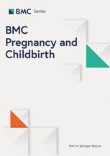Wiley, whose Hindawi subsidiary has attracted thousands of paper mill papers that later needed to be retracted, has seen widespread paper mill activity among hundreds of its journals, it announced yesterday.
More than 270 of its titles rejected anywhere from 600 to 1,000 papers per month before peer review once they implemented a pilot of what the publisher calls its Papermill Detection service. That service flagged 10-13% of all of the 10,000 manuscripts submitted to those journals per month, Wiley told Retraction Watch.
Wiley said the service includes “six distinct tools,” including looking for similarities with known paper mill papers, searching for “tortured phrases” and other problematic passages, flagging “irregular publishing patterns by paper authors,” verifying researcher identity, detecting hallmarks of generative AI, and analyzing the relevance of a given manuscript to the journal.
Continue reading Up to one in seven submissions to hundreds of Wiley journals flagged by new paper mill tool







